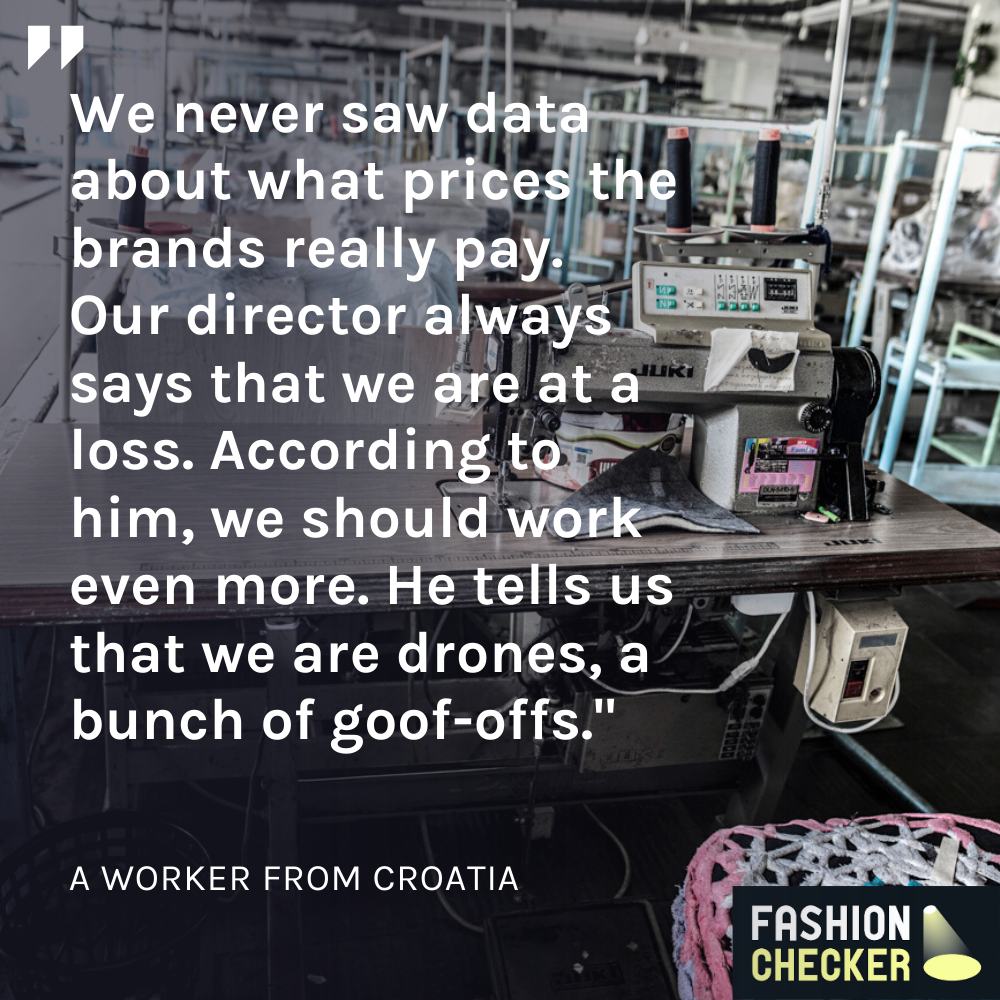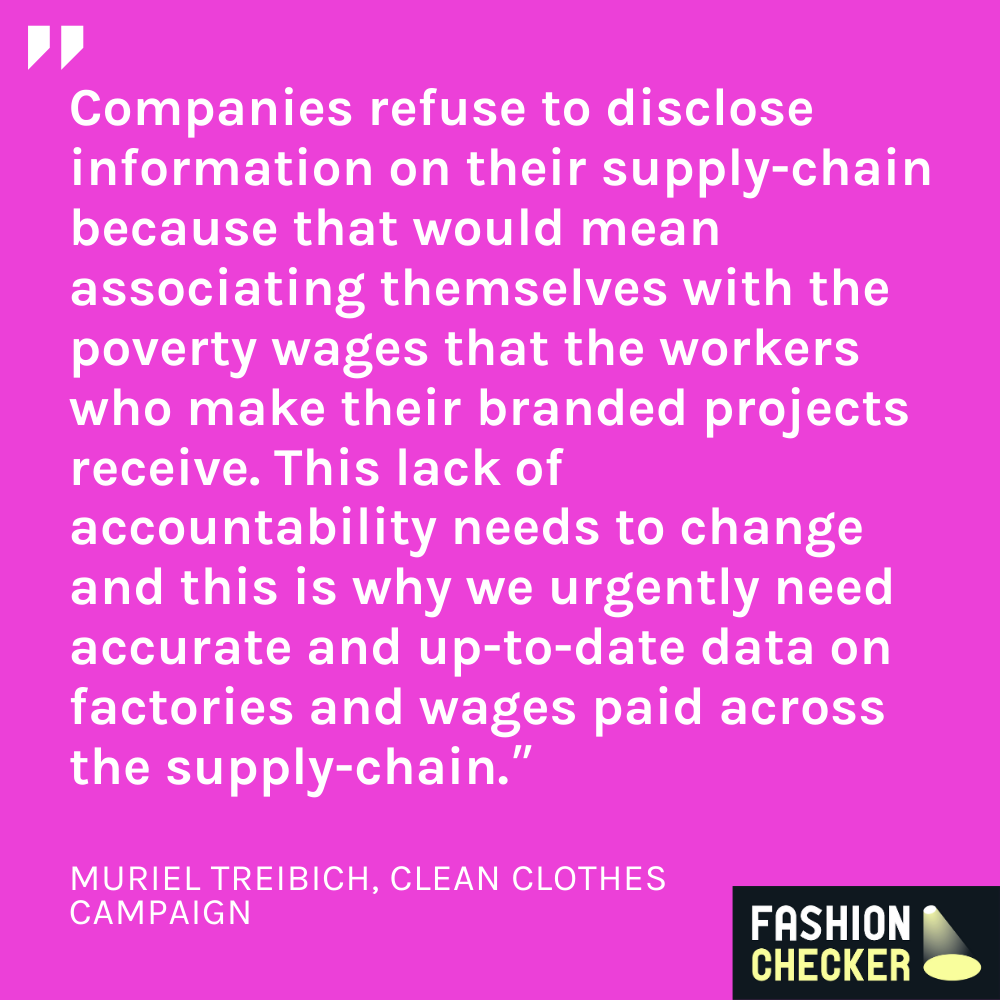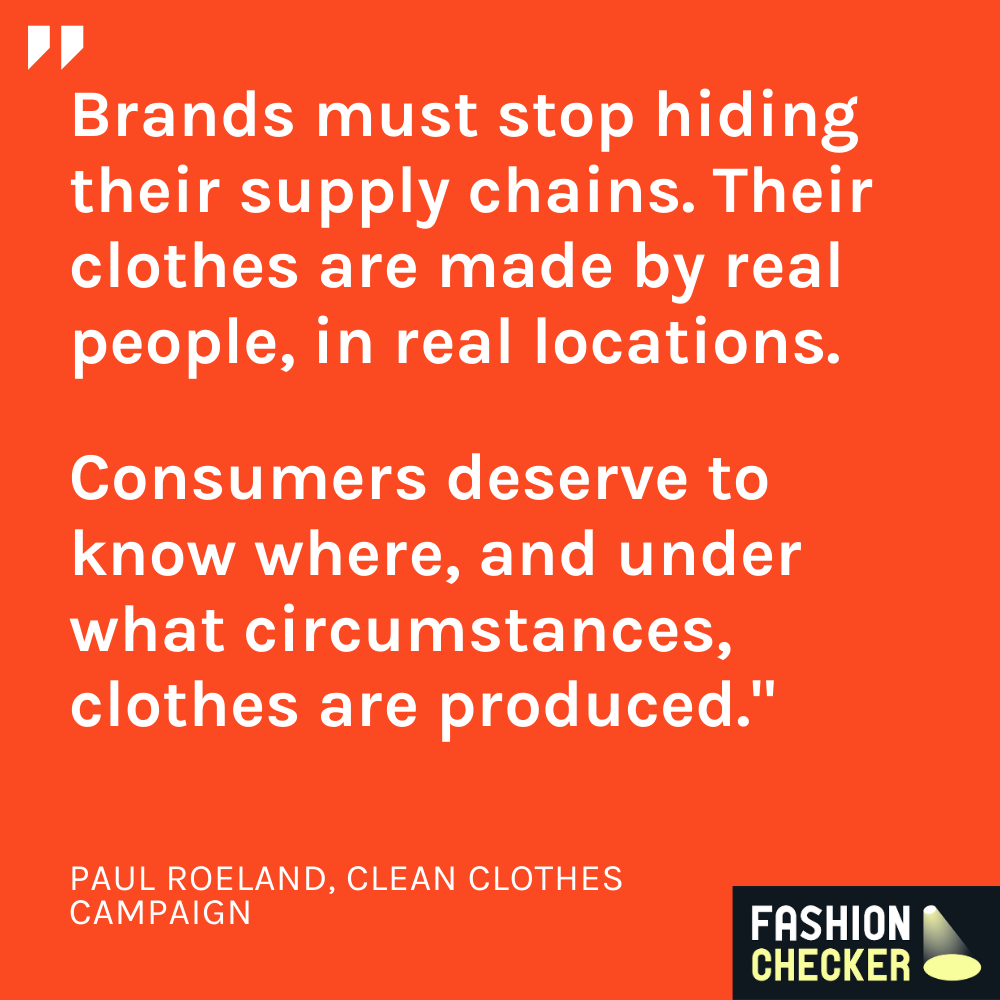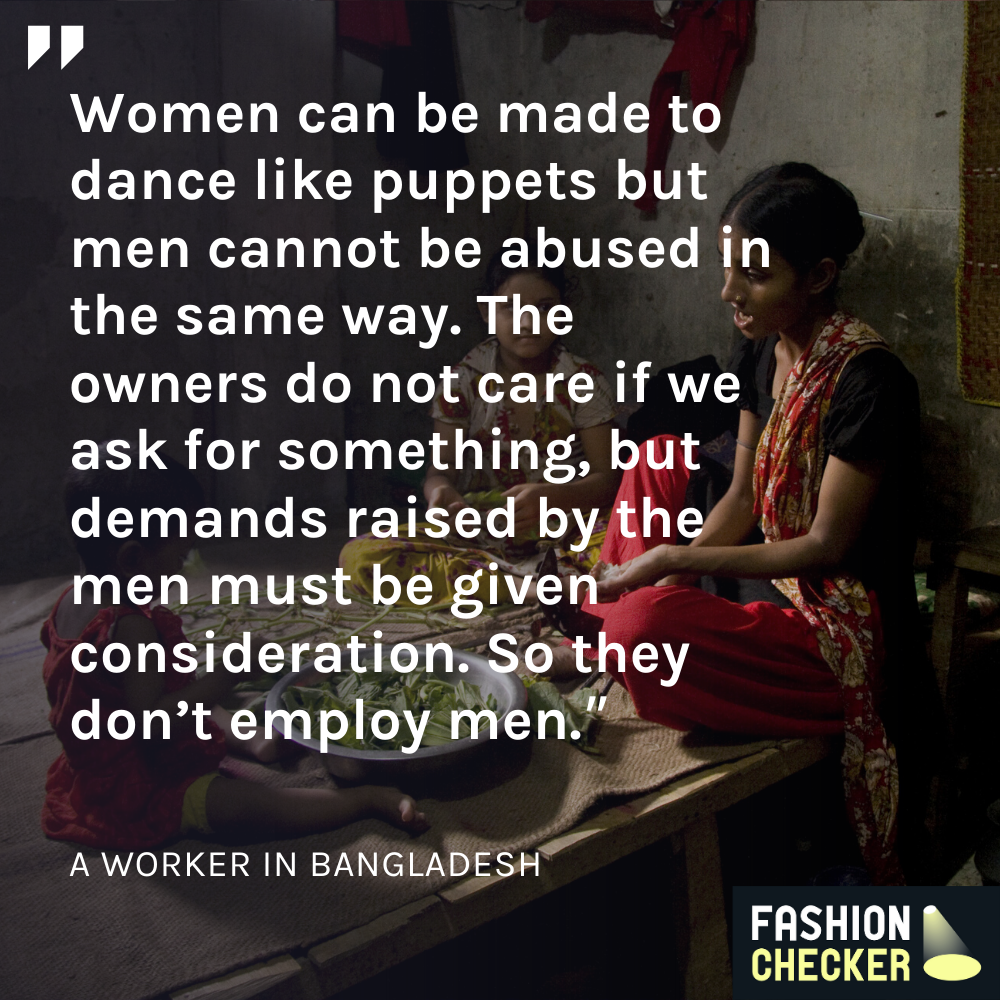
New website puts the fashion industry’s low wages in the spotlight, accelerating the campaign for living wages.
The Clean Clothes Campaign has launched a new website for labour rights activists and consumers to gain deeper insight into where clothing was made and the working conditions in which it was produced. The Fashion Checker website goes live today and gives garment workers, activists and consumers access to real data from supply chains of the worlds’ biggest fashion brands including Primark, Bestseller and Topshop.
As demand for ethical and sustainable fashion has increased, brands have responded with large-scale marketing campaigns and engaging sustainability reports. At the same time brands have continued to ruthlessly seek lower prices for goods, forcing suppliers to operate on narrow profit margins and squeezing the wages of workers who are already living on the poverty line.
Poverty wages in the garment industry are often hidden deep within complex and secretive supply chains. For decades, brands and retailers have built profits through a low-wage, labour-intensive model. Lack of transparency in the garment industry has enabled brands to distance themselves from workers and evade their responsibility to address low wages and exploitation in supply chains. Lack of transparency also impedes workers’ ability to organise and demand fair pay for their labour.
- 93% of surveyed brands failed to provide evidence that they are paying a living wage to any of their suppliers.
- 63% of surveyed brands do not disclose the names or addresses of suppliers or only partially comply with the Transparency Pledge.
- The Clean Clothes Campaign will use data on the website to put pressure on brands and policymakers to implement living wages for all workers in the garment industry by 31st December 2022.
The COVID-19 crisis has laid bare inequalities in the garment sector as brands cancel orders and impose unilateral discounts on suppliers, forcing workers into destitution. The crisis has shattered the carefully crafted illusions of sustainable and ethical fashion consumption built by brands in recent years. Consumers are becoming increasingly aware of the power imbalances in supply chains that keep workers living in poverty. As workers with no life savings are hit by factory closures and mass lay-offs, the argument for a living wage has never been stronger.
The Fashion Checker website will increase transparency in the garment industry, shining a light on the low wages, excessive overtime and exploitation endemic in the sector. Information published on the website will include details about workers’ wages, including how gender and migration status intersect with pay levels and working conditions.
It is estimated that 60 million garment workers are employed in the industry, around 80% of whom are women. Low wages have severely restricted workers from fighting for better working conditions and wages, maintaining the status quo.
As well as providing information for consumers and activists, the Clean Clothes Campaign is also publishing a list of demands for brands and policymakers. Key demands include the commitment to use transparent and robust living wage benchmarks, and advance mandatory human rights due diligence within supply chains.
Despite an increase in transparency in recent years, campaigners are calling on brands and policymakers to publish more data and accelerate the pace at which they implement transparency in supply chains.
- Under the UN guiding principles on Business and Human Rights brands are obligated to run their businesses responsibly, however in 2020 garment workers are still fighting for their basic human rights to be met.
- In 2019, only 35% of 200 brands surveyed in the Fashion Transparency Index had disclosed the Tier 1 factories and workshops in their supply chains.
The website initially includes data from a survey of 108 brands and direct interviews with hundreds of workers in five garment-producing countries. As the Fashion Checker project continues, the data-set will expand to include more information submitted by garment workers and labour rights activists. This will allow consumers, policy makers and other stakeholders to track whether the promises and initiatives that brands claim to undertake, actually contribute towards achieving living wages for workers.
Visit fashionchecker.org to find out more.
The "Filling the Gap: Achieving Living Wages through Improved Transparency" Project is co-funded by the European Union.





